14 Must-Venture Vietnam Destinations for Urban and Nature Tours!
Being one of the hotspot destinations in Asia for international travelers, Vietnam is a diverse country with plenty of charms that attract tourists to visit the nation, which is also known by its epithet, the Land of the Ascending Dragon.
Each region of the country boasts numerous city and natural destinations that suit the preferences of urban or nature travelers, making them a must-add to the travel checklist of those visiting Vietnam.
Ready to take off on your urban and nature tour in Vietnam? Well, be sure to check out our article today, because we have featured the best places to visit in Vietnam for urban and nature tourism!
7 Best Places to Visit in Vietnam for Urban Tourism
Vietnam is home to unique cities that are rarely found elsewhere, ranging from bustling metropolises, tranquil historical cities to charming coastal towns. In each of these cities, you’ll discover a plethora of enticing tourist destinations – especially for travelers who prefer urban tourism. If you’re planning a visit to Vietnam, we encourage you to explore this list of the best places in Vietnam for a city tour!
1. The Old Quarter

Historical places always have their own charms, just like the Old Quarter in Hanoi! This famous landmark is comprised of 36 streets, with each street having been home to artisans and craftsmen specializing in specific merchandise since the 15th century. If you want to wander the alleys of the Old Quarter, a great starting point would be the Dinh Tien Hoang roundabout!
2. Hoi An Ancient Town

Among the best places in Vietnam to visit for an urban tour is Hoi An Ancient Town! This iconic destination is a preservation site for Vietnam’s unique and ancient architecture, complemented by its mild climate, friendly locals, and poetic scenery. Here, tourists can choose to roam the historical streets, visit the Cau Pagoda, explore traditional villages, or relax at nearby cafes after wandering the ancient town.
3. Hue

Hue is a hub of museums, tombs, rivers, and passes and is one of the most popular tourist destinations in the country. There are plenty of places to explore when you visit Hue, ranging from the Imperial City (a confined fort that once served as the administrative capital of Southern Vietnam) and the Perfume River (a tranquilizing river named after the tropical aromas attained from the rich flora and fauna) to the Thien Mu Pagoda (a monument in Hue that is an icon of traditional Vietnamese architecture)!
4. The Golden Bridge

Perched inside the Ba Na Hills in the coastal city of Da Nang, the Golden Bridge is one of the most recognizable among the many bridges in Vietnam. How could it not be? Its unique design, which resembles two giant hands supporting the bridge, and its golden-yellow railing frames, are a masterpiece for the eyes to behold! At a height of 1,400 meters above sea level, the Golden Bridge is a must-visit on your list of urban tourism destinations.
5. Ben Thanh Market
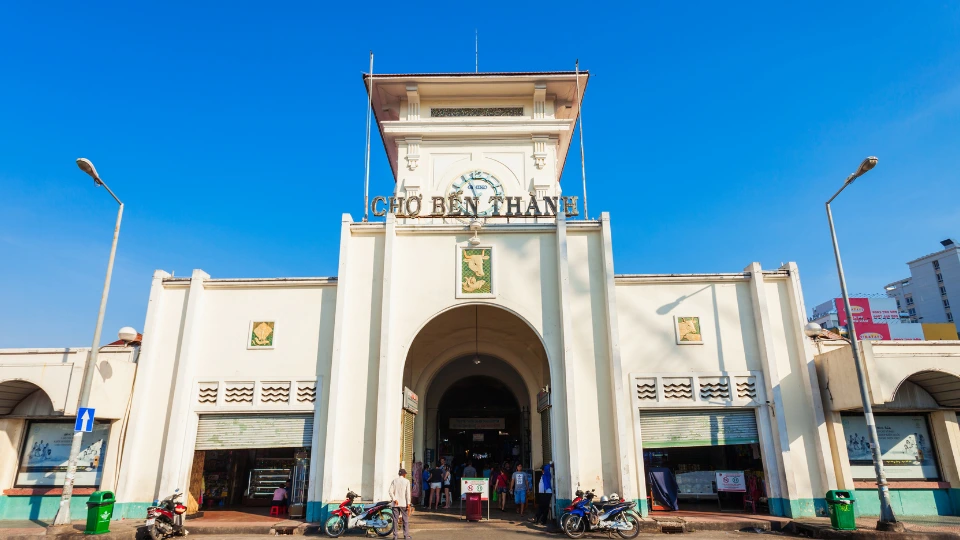
Here at Ben Thanh Market, visitors will be able to purchase cheap yet quality clothes, souvenirs, accessories, and even electronic goods! While Ben Thanh Market is a place that sells these kinds of things during the day, after the sunset arrives, it transforms into a hub for Ho Chi Minh City’s famous street food.
6. The Crazy House

Another destination to visit during your Vietnam urban tour is the Crazy House in Da Lat! The Crazy House is a mind-boggling property where each room, hall, and area is decorated in a unique theme. Originally known as the Hang Nga Guest House and Art Gallery, it was designed by architect Dang Viet Nga. Speaking of which, you can also stay overnight in one of its rooms!
7. Hanoi’s Night Markets

Wondering where to explore once the night falls? If you’re staying in Hanoi, be sure to visit its night markets! The recommended first stop is the Dong Xuan Night Market, a bustling place that sells clothing ranging from high-end to affordable, as well as delicious Vietnamese dishes. After that, we suggest heading to the Long Bien Fruit Market, where you can refresh yourself with fresh fruits. Lastly, conclude your night tour by visiting the Quang Ba Night Flower Market, where countless flowers are available at reasonable prices.
7 Best Places to Visit in Vietnam for Nature Tourism
Urban tourism is not really your thing? Well, that’s fine! If you’re more of an eco-tourist, Vietnam won’t disappoint you with its collection of natural wonders, blessed by Mother Nature’s generosity. From beautiful islands and alluring national parks to beaches with clear blue waters, we have compiled a list of breathtaking destinations to kick off your nature tour in Vietnam!
1. Cham Islands

Located two hours by boat off the coast of Hoi An, the Cham Islands are a cluster of eight islands. They consist of extensive forests, rice paddies, coconut palms, and rich marine life. The place is perfect for travelers who love beaches, as they can snorkel in its pristine waters or lounge on white sand beaches! Visitors can also purchase local handicrafts on the Cham Islands’ largest and only inhabited island, Hon Lao.
2. Ha Long Bay

The famous Ha Long Bay is a collection of roughly 1,600 limestone karsts jutting up from the emerald water, covered in lush greenery! A UNESCO World Heritage Site and one of Vietnam’s most recognizable tourist destinations, Ha Long Bay is an eerie and enchanting place that is a must-visit for any traveler to Vietnam. Travelers can purchase affordable daily tours, overnight excursions, or luxury cruises in Ha Long Bay from Hanoi, which is about 3.5 hours away by car.
3. Phong Nha-Ke Bang National Park

Known as Phong Nha-Ke Bang, this massive national park is situated in the middle of the Annamite Mountains. It boasts limestone plateau formations, alluring tropical forests, enticing underground rivers, and extensive cave systems, including Hang Son Doong, the world’s largest cave, which is only explorable via guided tour. The UNESCO World Heritage Site is also home to other mesmerizing caves, such as Dark Cave, Paradise Cave, and its most popular, Phong Nha Cave!
4. Sapa’s Terraced Rice Fields

Sapa, a picturesque city with majestic and tranquil scenery, is best known for its terraced rice fields, which are among the most beautiful in the world! Aside from terraced rice fields, Sapa is also surrounded by lush forests and mesmerizing mountains, making it a popular destination for trekking and hiking enthusiasts.
5. Mui Ne

Mui Ne, a southern Vietnamese beach town with a pretty 12 km-long coastline, is best known for its impressive red and white sand dunes, where tourists can explore on foot or by four-wheeler rented on site. The famous nature tour in Mui Ne is the Fairy Stream, a one-hour nature trek through the stream’s orange clay bed, which is a contrast to Mui Ne’s bright blue sky!
6. Con Dao

Are you a fan of wildlife? Come visit Con Dao, one of Vietnam’s best destinations for wildlife tours! Located about 322 km off the coast of Ho Chi Minh City, this archipelago is a natural and safe habitat for various turtle species to lay their eggs, such as green turtles, hawksbill turtles, and leatherback turtles. On its most popular islands (Bay Canh, Tre Lon, Cau, and Tai), lucky tourists can assist in releasing newly hatched turtles to the sea!
7. Nha Trang’s Beaches

Last on the list is Nha Trang, a hub of Vietnam’s best beaches! Nha Trang’s beaches, ranging from Bai Tranh Beach to Robinson Beach, offer a plethora of rich marine life worth exploring. Nha Trang is also one of the places with the most competitive prices for world scuba certification and dive packages – so, if you want to get your scuba license and enjoy the alluring waves of sand-white beaches, Nha Trang is the place!
Wrapping Up
If you are wondering which one is the better pick between Vietnam’s nature and urban tourism, that is up to you to choose because everybody has their own preference. All we can say is that with the country’s diverse, unique, and enticing destinations, be sure to seize the opportunity to visit them once you are in Vietnam!
Speaking of traveling to Vietnam, a fun alternative is to do it through “Cultural Exchange Programs” a tailored work-based training for young talents offered by RMC Asia. Cultural Exchange Programs consist of focused internships and management training in the international hospitality and tourism industry, taking place across Asia’s best destinations. The good news is that Vietnam is also part of the destinations!
Our Cultural Exchange Programs go beyond ordinary work-based training programs. They serve as platforms for providing talents worldwide with hands-on working experience in international hotels and resorts to enter the global job market and become valuable assets in the hospitality industry – and the opportunity for participants to immerse themselves in the unique cultural settings of Asia’s enticing countries.
Be a part of a life-changing journey with our Cultural Exchange Programs by joining our successful participants now!
14 Must-Venture Vietnam Destinations for Urban and Nature Tours! Read More »



 Vietnam, a country with a timeless charm.
Vietnam, a country with a timeless charm.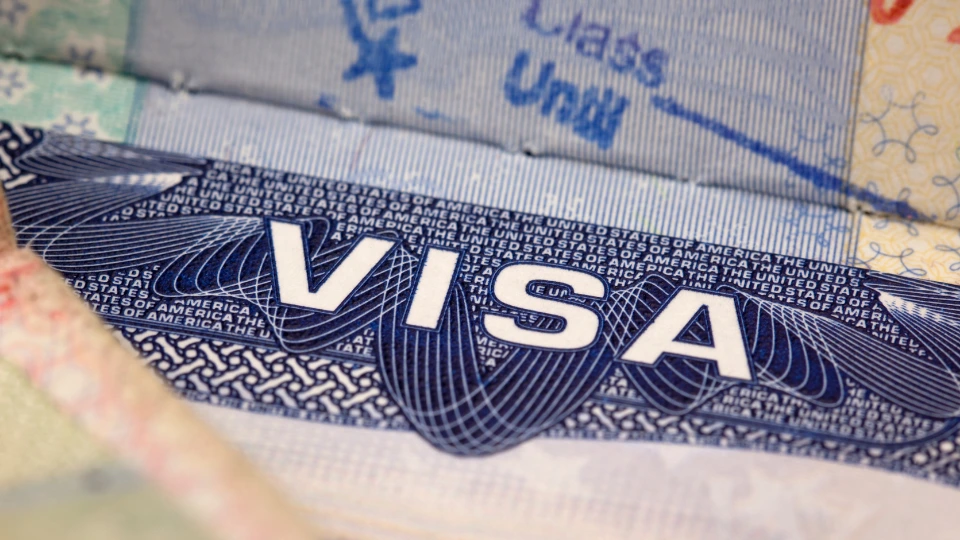 Arrange your visa before visiting Vietnam.
Arrange your visa before visiting Vietnam. Purchase a flight ticket to Vietnam.
Purchase a flight ticket to Vietnam. Pack the right clothes for your Vietnam tour.
Pack the right clothes for your Vietnam tour. Organize your travel budget to Vietnam.
Organize your travel budget to Vietnam. Learn Vietnamese.
Learn Vietnamese. The Flag Tower in Hanoi, Vietnam.
The Flag Tower in Hanoi, Vietnam. Tourists boating the Mekong Delta in Vietnam.
Tourists boating the Mekong Delta in Vietnam. One of Hoi An beaches in Vietnam. (via
One of Hoi An beaches in Vietnam. (via  A sight in Ha Giang, Vietnam.
A sight in Ha Giang, Vietnam. Banh mi, a signature food of Vietnam.
Banh mi, a signature food of Vietnam.
 Recap of the hospitality and tourism industry during the pandemic.
Recap of the hospitality and tourism industry during the pandemic. Post-pandemic hospitality and tourism industry.
Post-pandemic hospitality and tourism industry. Bleisure travel.
Bleisure travel. Personalization.
Personalization. Active ecotourism.
Active ecotourism. Wellness travel.
Wellness travel. Staycation.
Staycation. Transformative travel.
Transformative travel. Tech-empowered travel.
Tech-empowered travel. Experience tourism.
Experience tourism. Longer trips.
Longer trips. Sustainable tourism.
Sustainable tourism.
 The definition of personalized service.
The definition of personalized service. The importance of personalized service.
The importance of personalized service. Find the ideal target market.
Find the ideal target market. Tailor the hotel’s online presence.
Tailor the hotel’s online presence. Allow guests to customize their stays.
Allow guests to customize their stays. Maximize the power of communication.
Maximize the power of communication. Get the team together.
Get the team together. Unique guest experience.
Unique guest experience. Digital reputation.
Digital reputation. Attracts potential guests.
Attracts potential guests. Additional revenue.
Additional revenue. Customer loyalty.
Customer loyalty.
 Social media marketing definition.
Social media marketing definition.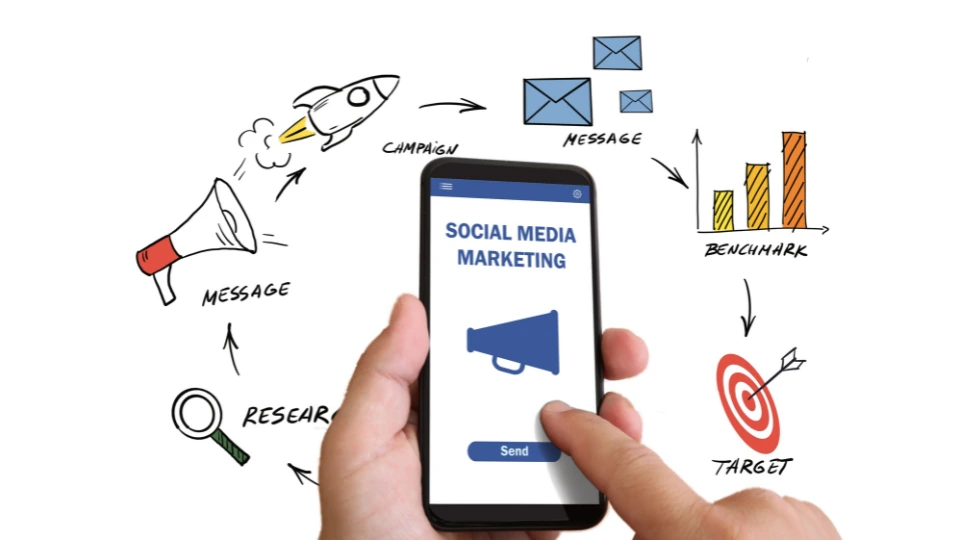 How social media marketing works.
How social media marketing works. The significance of social media marketing for hotels.
The significance of social media marketing for hotels. Social media can reach a wider audience.
Social media can reach a wider audience. Social media can increase brand awareness.
Social media can increase brand awareness. Social media can generate leads.
Social media can generate leads. Social media can improve customer service.
Social media can improve customer service.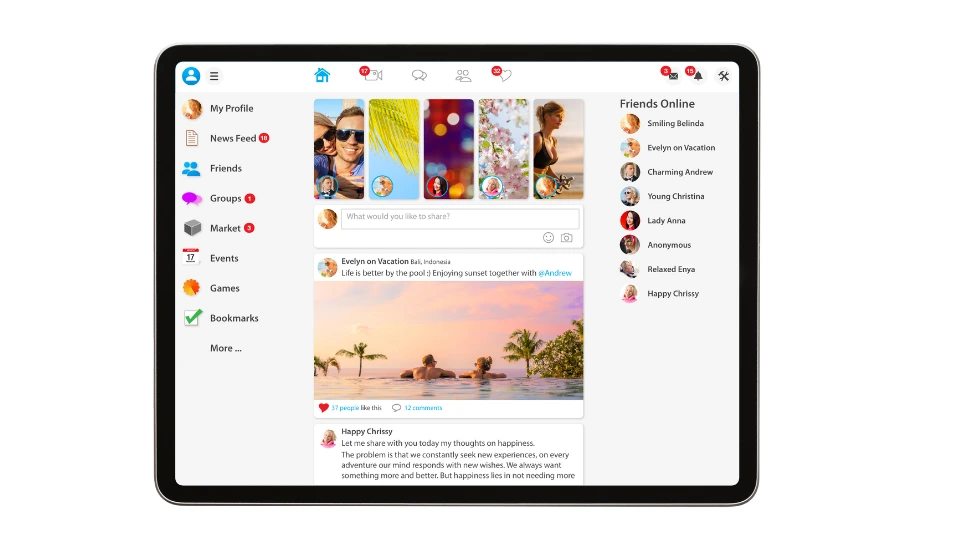 User-generated content.
User-generated content. Storytelling.
Storytelling. Multilingual marketing.
Multilingual marketing.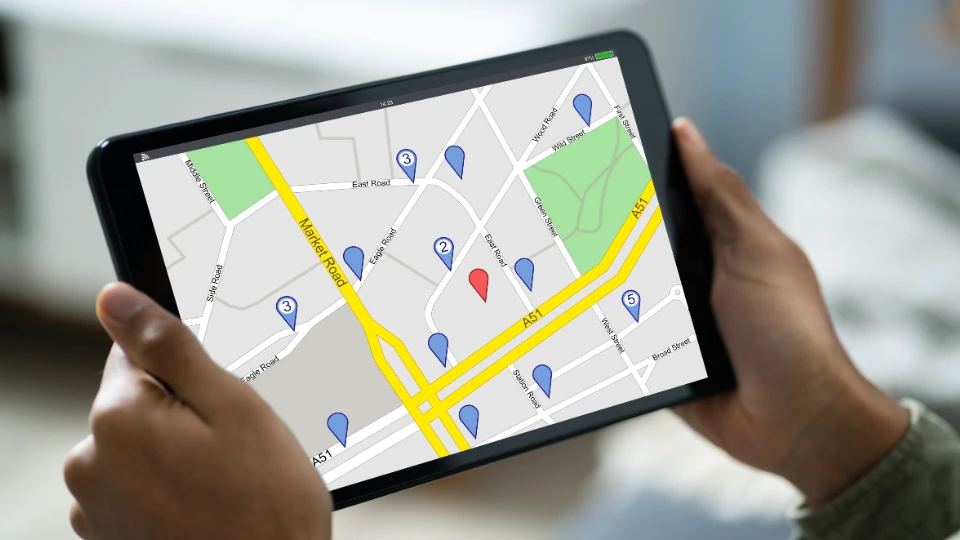 Hyperlocal marketing.
Hyperlocal marketing. Nostalgia marketing.
Nostalgia marketing. Social media messaging.
Social media messaging. Influencer marketing.
Influencer marketing.